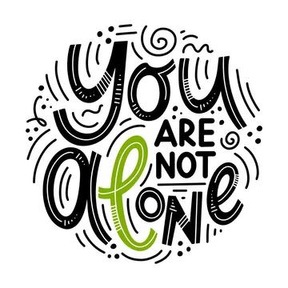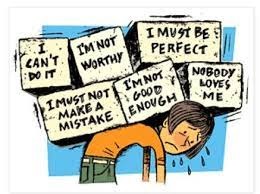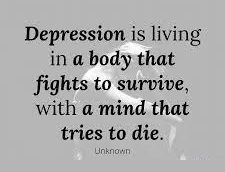You’ve had mental health challenges, and you’ve weathered them with your strengths.
Celebrate that, and look forward with positivity to the rest of the year, a brand-new year waiting for you to jump into.
Reasons to make this year YOUR year of Mental Health
This might sound energizing, or it might sound exhausting. Living with a mental health challenge can make it difficult at times to look ahead with enthusiasm. To give you a boost, here are great reasons to make this year YOUR year of mental health
- - You deserve it. You have inherent worth and facing mental health challenges doesn’t diminish your value.
- - You have passions. Mental illness can feel deflating and can make you focus on all of the associated struggles. Yet there are things that bring you joy, and you can make pursuing them a priority this year.
- - You have good things in your life that mental illness can’t take away from you. You can love, you can nurture yourself and others, and you can appreciate beauty within you and around you.
At EWC we acknowledge that living with mental health challenges can be difficult. There are times when you don’t think you will ever feel mentally healthy. Yet you are not your illness. You are separate, a deserving human being who has countless reasons to make the year amazing and YOUR mentally healthy year.
Change the Way You Talk to Yourself to Feel Better
Negative self-talk is a hallmark of almost every mental health
challenge, from mental illness to personality disorders to just
the ordinary experiences of being human. We all have
automatic negative thoughts that cloud the way we perceive
ourselves and the world around us, and when we turn these
against ourselves, we suffer.
It’s natural to want to know how to get rid of them because
negative thoughts interfere in our ability to live the life we want.
Anxiety and negative thoughts strengthen each other. When we
learn how to deal with them, we can get rid of them.
It’s what we think about ourselves and the world around us, not
actual events in our lives, that aggravate anxiety.
You can get rid of negative thoughts and anxiety with neutral
observation.
Anxiety and Thoughts: Observing Your Thoughts and Yourself.
Your brain both thinks and observes. With anxiety, the thinking
part of the brain seems to completely take over; with thoughts
that are often predominately negative.
Our thinking self, analyzes, worries, judges, and has a host of
automatic negative thought patterns that contribute to anxiety.
We also have an observing self, this part of our brain simply
exists. It watches and is aware of both our inner and outer
worlds, but it doesn’t analyze, critique, or judge. It is aware of
anxiety’s negative thoughts; however, it doesn’t buy into them.
Developing our observing, neutral perspective can help get rid
of the negative thoughts of anxiety. This is a learned skill, and
with practice we can untangle ourselves from our thoughts,
reducing their impact and creating space to live well.
Negative thought patterns include:
- 1. All-or-nothing thinking (black-or-white thinking)
- 2. Overgeneralization: thinking in terms of “always” or “never;”
- 3. Mental filter: filtering out the positive and dwelling on the negative;
- 4. Discounting the positive: noticing the positive but dismissing it as an exception;
- 5. Jumping to conclusions: automatically assuming the worst;
- 6. Magnification: exaggerating the negative and placing too much importance on it;
- 7. Emotional reasoning: letting negative emotions be in charge;
- 8. “Should” statements: imposing rules on yourself;
- 9. Labeling: using negative words and concepts to describe yourself.
- 10. Personalization or blame: Thinking things are your fault or someone else’s fault.
When you become aware of these, you can begin to step
back and just observe the thoughts. They’re there, but
you don’t have to believe them


You don’t have to be a victim of your own self-talk. Tune in to your words and thoughts and replace mean words with realistic positive ones. For example:
Change “I’m stupid,” to “I don’t know everything, but I know a lot about __________.”
“No one likes me,” can become “_________ likes me, and I know it because _________.”
Shift from “I don’t deserve happiness,” to “Despite my imperfections, I’m a good person and I deserve happiness as much as others.”
“I’m never going to ___________” can become “I’m persistent and patient, and I’ll get this.”
What you say to yourself matters. When you change yourwords, you’ll begin to feel more mentally healthy.
Try these tips for getting rid of and replacing negative thoughts that provoke your anxiety:
- 1. Observe your negative thoughts and self-talk.
- 2. Reflect, such as in journaling or artistic exploration, on your inaccurate beliefs.
- 3. Question them and make changes to them, For example, you’re probably not incompetent. What are your strengths, and where do you have success
- 4. Create statements that realistically counter your negative thoughts and self-talk. Such positive statements are known as affirmations.
- 5. Practice mindfulness, being present in the moment.
- 6. Cultivate a sense of awe and gratitude. Connecting to things that are bigger than you, than all of us, is a natural way to counter negative thoughts and anxiety

Increasing your awareness of your thoughts and self-talk is quite empowering because you no longer feel at the mercy of anxiety. When you observe what’s going on in your head and then replace it with thoughts and beliefs that are much more accurate than the automatic thoughts, you are on your way to getting rid of these negative thoughts and anxiety.


To Get Out of Bed with Depression Use This Checklist
Clinical depression (major depression) is an illness that interferes with thinking, planning, and energy levels.
This makes it challenging to do even basic things like getting out of bed or off the couch (and staying that way). When you have depression, using a checklist can make getting up and staying up possible.
Keep the checklist by your bed and use it every day to make getting up and staying up a habit. Hint: prepare what you need ahead of time to make the steps easier.
- 1. Get your blood flowing. Stretch arms, legs, and torso. Roll your wrists, ankles, and neck.
- 2. Breathe slowly, deeply.
- 3. Continue to stretch and breathe while you drink the glass of water you placed beside your bed.
- 4. In the notebook beside your bed, write one reason you have for getting up. Repeat it out loud. (It’s okay to write this ahead of time so in the morning you only need to read it.)
- 5. Stand up and make your bed immediately.
- 6. Reward yourself with tea or coffee from a favourite mug or something else you enjoy.
In using this checklist for getting out of bed with depression, you can take action without thinking and planning, showing depression that you can function well no matter how it tries to interfere.
Sometimes I just don't wanna think....

Colour my Thoughts

Laughter is the Best Medicine
A good sense of humor can't cure all ailments, but data is mounting about the positive things laughter can do.
Short-term benefits
A good laugh has great short-term effects. When you start to laugh, it doesn't just lighten your load mentally, it actually induces physical changes in your body.
Laughter can:
- 1. Stimulate many organs.
- 2. Laughter enhances your intake of oxygen-rich air,
- 3. Stimulates your heart, lungs and muscles, and
- 4. Increases the endorphins that are released by your brain.
- 5. Activate and relieve your stress response. A rollicking laugh fires up and then cools down your stress response, and it can increase and then decrease your heart rate and blood pressure. The result? A good, relaxed feeling.
- 6. Soothe tension. Laughter can also stimulate circulation and aid
- muscle relaxation, both of which can help reduce some of the
- physical symptoms of stress.
Long-term effects
Laughter isn't just a quick pick-me-up, though. It's also good for you over the long term.
Laughter may:
- Improve your immune system.
- Relieve pain. Laughter may ease pain by causing the body to produce its own natural painkillers.
- Increase personal satisfaction. Laughter helps you connect with other people.
- Improve your mood, and also improve your self-esteem.
- Improve your sense of humour
Are you afraid that you have an underdeveloped — or nonexistent — sense of humour? No problem. Humour can be learned. In fact, developing or refining your sense of humour may be easier than you think.
Put humour on your horizon.
Laugh and the world laughs with you. Even if it feels forced at first, practice laughing. It does your body good.
Consider trying:
Share a laugh. Make it a habit to spend time with
friends who make you laugh. And then return the
favour by sharing funny stories or jokes with those
around you.
Know what isn't funny. Don't laugh at the expense of
others. Some forms of humour aren't appropriate. Use
your best judgment to discern a good joke from a bad
or hurtful one.
Laughter is the best medicine.

Go ahead and give it a try.
Turn the corners of your mouth up into a smile and
then give a laugh, even if it feels a little forced. Once
you've had your chuckle, take stock of how you're
feeling. Are your muscles a little less tense? Do you
feel more relaxed or buoyant?
That's the natural wonder of laughing at work.
How many psychotherapists does it take to change a lightbulb?
Just one, so long as the light bulb *wants* to change


